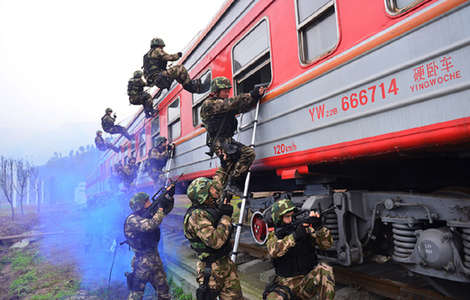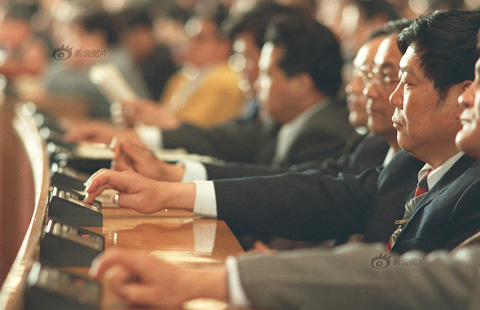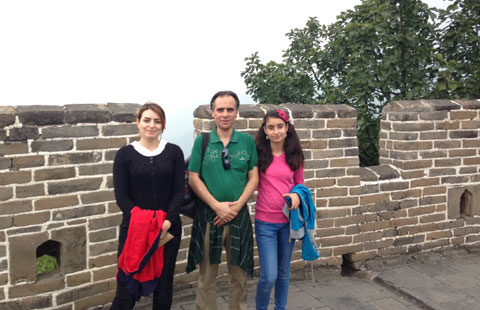Chinese differ on Beijing's chance for 2022 Olympics bid
Updated: 2015-03-15 12:13
(Xinhua)
|
||||||||
Public support can be listed as another positive factor for Beijing, too.
According to an opinion poll conducted last year by Ipsos, a global market research company, 94.8 percent of the Chinese people, including 91.8 percent in Beijing and 99.5 percent in Zhangjiakou, support the 2022 bid.
Chinese political advisers have also expressed their confidence in Beijing's bid at the annual session of the National Committee of Chinese People's Political Consultative Conference (CPPCC).
"As former IOC president Jacques Rogge said, the 2008 Beijing Olympics was 'truly exceptional'. I believe if the IOC awards Beijing the 2022 Games, we can also deliver one of the best Winter Olympics in history," said CPPCC member Bian Zhiliang.
Almay's Olympic dream
Almaty, the former capital and commercial center of Kazakhstan in central Asia, has already made two unsuccessful attempts to land the event, having lost out to last year's host Sochi for 2014 and Pyeongchang for 2018.
Perhaps its undeveloped infrastructure and lack of experiences in hosting major events was the main reason that Almaty did not even make the shortlists for the last two times.
Almaty has co-hosted with Astana the 2011 Asian Winter Games and will stage the Winter University Games in 2017, but the magnitude of those events was no match with the Olympic Games.
Another drawback is that the weathered and sometimes single lane roads linking the mountains, especially the Ak Bulak cluster, and downtown could cause logistics challenges. But with the 2017 plan for the Universiade Almaty officials claim that this will be addressed.
The merits of the Almaty 2022 bid, however, are equally impressive - compactness and sustainability, which are fully in line with the Olympic Agenda 2020, the series of 40 reforms passed by the International Olympic Committee last December.
"We want to fit the Olympic Games to the city, not to create the city for the Olympic Games," said Andrey Kryukov, vice-chairman of the Almaty bid.
Almaty claims to have the most compact bid in three decades, with all venues within a 35-kilometer radius of the main Olympics Village, which means the logistics convenience for athletes, media and delegates. In addition, eight of the 14 proposed venues are already in place and another three are being constructed for the 2017 Winter Universiade.
The IOC had completed its five-day inspection tour to Almaty on Feb 18. The Evaluation Commission headed by Alexander Zhukov was impressed with Almaty 2022's efforts to adapt to the Olympic Agenda 2020.
"The Almaty bid committee took full advantage of the flexibility offered by Agenda 2020 to optimize bid proposals," said the Russian IOC member.
"They advanced goals of sustainability, legacy and cost containment without comprising on the core requirements for the Olympic Games."
Whatever happens, the 2022 race will end in another Games in Asia, meaning that three successive Olympics will be held on the world's largest continent, following Pyeongchang 2018 and Tokyo 2020.
- Jackie Chan records song for 2022 Winter Olympics
- Beijing's advantages in 2022 Winter Olympics bid
- Beijing's edge in 2022 Winter Olympics bid
- Volunteer hopes to gain more memories in 2022
- '50-50' chance for Beijing's 2022 bid
- '50-50' chance for Beijing's 2022 bid, says Wei Jizhong
- FIFA urges end-of-year World Cup for 2022
- China prepares for the 2022 Winter Olympic Games
- World carbon emissions stall after almost 40 years of gains
- Myanmar ferry capsizes; 33 dead, at least a dozen missing
- Chinese air force reinforces patrolling over Myanmar border
- Sino-Thai accord reached on rail project engineering
- Iraqi forces battle Islamic State for Tikrit on two fronts
- Venezuelans march in solidarity with govt

 Germany's Black Forest: a popular holiday destination
Germany's Black Forest: a popular holiday destination
 Sea of color at Shenzhen race
Sea of color at Shenzhen race
 Taking the fight to the terrorists
Taking the fight to the terrorists
 Historical images of 'two sessions'
Historical images of 'two sessions'
 How expats celebrated Chinese Spring Festival in 2015
How expats celebrated Chinese Spring Festival in 2015
 Sacred craft dwindles
Sacred craft dwindles
 Apple Watch clones clock big hit in market
Apple Watch clones clock big hit in market
 Across America over the week (from March 6to March 12)
Across America over the week (from March 6to March 12)
Most Viewed
Editor's Picks

|

|

|

|

|

|
Today's Top News
Foreign investment restrictions to be cut
Taking the fight to the terrorists
China: Action to be taken if deadly bombing happens again
New bureau set to boost graft fight
28 high-ranking 'tigers' to stand open trial
China lodges representations after Myanmar bomb kills 4
Free trade zones in China
China has huge growth potential
US Weekly

|

|








